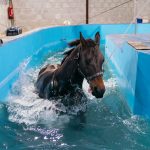Conures are vibrant, intelligent birds that, like all pets, require specific care to thrive. However, if you happen to have a solitary conure, you might wonder: How can you optimize its environment to ensure its best possible life? This is a question that often pops up among conure owners, and today, we aim to address it. This article will delve into the best environmental enrichment options for a solitary conure.
We’ll look at how to make your conure’s living space more stimulating, the importance of toys and interaction, and the benefits of varied diet and exercise. We’ll also discuss what you should avoid to maintain your conure’s health and happiness. By the end, you will have a comprehensive guide to enriching your solitary conure’s environment.
In parallel : What’s the Best Approach to Dental Hygiene for Small Breeds Like the Pomeranian?
Creating a Stimulating Living Space
Just as humans need a comfortable and well-equipped home to feel at ease and healthy, so do conures. A solitary conure spends a considerable amount of time in its cage, so it’s crucial that this space is set up to meet its needs and keep it interested.
A large cage is a must. Conures are active and love to climb, swing, and fly short distances. The cage should be wide enough for your bird to fully spread its wings and tall enough to accommodate a variety of perches at different heights.
In parallel : How to Prepare a Comprehensive Emergency Evacuation Plan for Multiple Large Breed Dogs?
In addition to the size of the cage, the contents are equally important. Perches are essential, but they shouldn’t all be the same. Offer a variety of shapes, diameters, and materials. Natural wooden perches are excellent as they offer a more authentic feel and help keep your conure’s beak and nails trimmed.
Lastly, don’t forget to regularly change the bird’s viewpoint by shifting the cage’s location from time to time. This small change can provide a new perspective and help keep your conure mentally stimulated.
The Importance of Toys and Interaction
A conure alone in its cage for long periods of time can quickly become bored and stressed. Therefore, supplying a range of interesting toys and ensuring regular interaction is crucial.
Toys offer your conure a chance to play, explore, and solve problems. It’s a good idea to offer a variety of toys, such as mirrors, bells, climbing frames, and puzzle boxes. Rotate them regularly to keep your bird’s interest.
Interaction is also key. Even if the conure lives alone, it needs social interaction to stay healthy and happy. Regular playtime and training sessions outside the cage give your bird a chance to bond with you and explore its environment.
Benefits of a Varied Diet and Regular Exercise
Just like us, conures need a balanced and varied diet to stay healthy. While a high-quality pellet diet is a good base, it should be supplemented with fresh fruits and vegetables.
They also love to forage, so hiding treats or food in toys or around the cage can provide entertainment and mental stimulation.
Exercise is equally important. Even in a large cage, a conure can’t fly as it would in the wild. Regular time outside the cage in a safe, supervised environment allows your conure to stretch its wings and burn off energy.
Things to Avoid in a Conure’s Environment
While enriching your conure’s environment is key, several things should be avoided to maintain your bird’s health and happiness. Loud noises and sudden changes can be stressful for your conure.
It’s also essential to avoid toxic materials in your bird’s environment. Many common houseplants are toxic to birds, and some household cleaners can release fumes that are harmful to your conure.
Lastly, avoid overfeeding your conure and remember that not every human food is safe for birds. Some foods, like avocados and chocolate, are toxic and should be avoided entirely.
By following these tips and paying attention to your conure’s individual needs, you can create an enriched environment that supports your solitary conure’s health and happiness. You will understand your bird better and have a more satisfying relationship with it as a result.
Understanding Your Conure’s Behavior and Emotions
Recognizing the unique behavior and emotions exhibited by your conure is a critical aspect of ensuring its well-being. Conures are expressive creatures, and understanding their behavioral patterns can provide significant insights into their emotional state and overall health.
Solitary conures are likely to display a range of behaviors, from curiosity and playfulness to aggression or fear. They may show their happiness by fluffing up their feathers, wagging their tails, and engaging in playful activities. Conversely, signs of distress can include decreased appetite, lethargy, feather picking, or a sudden change in behavior.
Regular observation can help you understand your bird’s normal behavior, thus making it easier to spot any changes that might indicate a problem. If your conure shows signs of distress or ill health, it’s important to consult a vet promptly.
Moreover, remember that conures, like all creatures, have individual personalities. Even solitary conures may differ significantly in their behavior, preferences, and needs. Therefore, observe your bird and adapt your care routine accordingly. For instance, some conures may enjoy a lot of interaction, while others might prefer less hands-on time.
A keen understanding of your conure’s behavior is not only beneficial for its health but also enhances your relationship with your feathered friend. The more you understand about your conure’s personality and emotional needs, the better you will be at providing an ideal environment for it.
The Importance of Regular Vet Check-ups
Apart from creating a stimulating environment, providing a balanced diet, and ensuring good social interaction, regular vet check-ups are paramount for a solitary conure’s health.
Just as humans need regular medical check-ups, so do conures. Regular vet visits can help spot potential health issues early before they become serious problems. Typically, a healthy conure should visit the vet once a year for a general wellness check. These check-ups include a thorough physical examination, weight check, and often some routine tests to track your bird’s overall health.
However, if your conure shows any signs of illness or distress, such as loss of appetite, changes in droppings, feather plucking, or lethargy, it’s important to take it to the vet immediately.
Remember, birds often hide their symptoms, so regular vet visits are crucial to catch any hidden health issues. Your vet can also provide valuable advice on diet, exercise, and environmental enrichment tailored to your bird’s specific needs.
Conclusion
Creating an optimal environment for a solitary conure requires a blend of a stimulating living space, diverse toys and interaction, a balanced diet, regular exercise, and understanding your bird’s behavior. Regular vet visits are also paramount for your bird’s overall health.
Remember, every conure is unique. The ideal environment for your bird may look different from another’s. Therefore, observe your bird, understand its unique needs and preferences, and adjust your care routine accordingly.
By creating an enriched environment and providing attentive care, you can ensure a healthy, happy life for your solitary conure. In return, you’ll enjoy the companionship of a bright, engaging, and affectionate friend.
Your commitment to understanding and enriching your conure’s environment will pay off in a more satisfying and meaningful bond with your pet. After all, a well-cared-for conure is a joy to have around, enriching your life as much as you enrich its.











